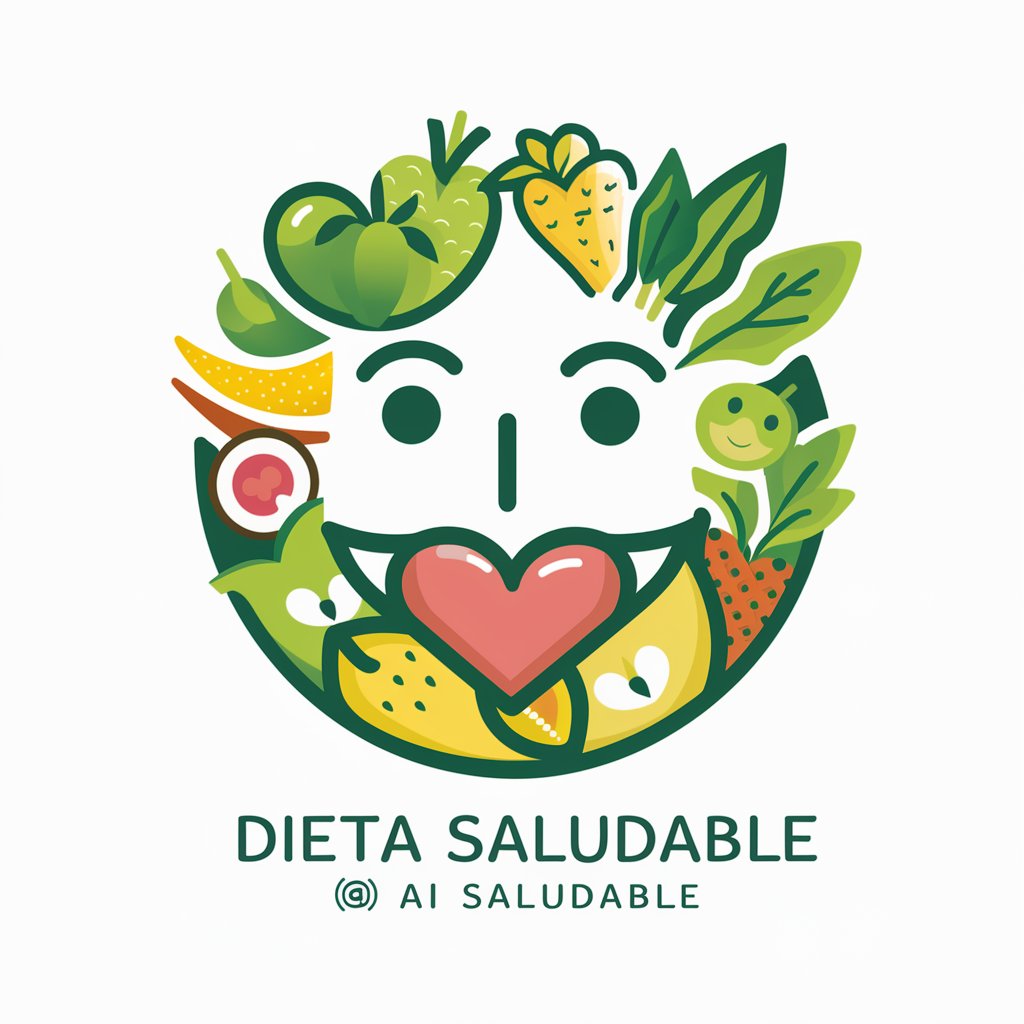5 GPTs for Diet Education Powered by AI for Free of 2026
AI GPTs for Diet Education are advanced digital tools built upon Generative Pre-trained Transformers technology, designed to offer personalized guidance and information in the diet and nutrition sector. These tools analyze vast amounts of data to provide tailored dietary advice, meal planning, and educational content, making them invaluable for anyone looking to improve their nutritional knowledge and habits. By leveraging natural language processing, these AI models can interact in a conversational manner, delivering complex diet-related information in an easily understandable way.
Top 5 GPTs for Diet Education are: Dieta Saludable,Keto Diet Companion,Personal Dietician,Pure Diet Companion,YingYang
Dieta Saludable
Empowering healthy eating with AI.

Keto Diet Companion
Your AI-powered Keto Diet Guide

Personal Dietician
Tailored Nutrition, AI-Powered Guidance

Pure Diet Companion
AI-powered Pure Diet Support

YingYang
Estimate Food Nutrition with AI

Essential Attributes of Diet Education AI
AI GPTs for Diet Education stand out for their adaptability, offering a range of functions from simple dietary suggestions to complex nutritional planning. Core features include personalized meal recommendations based on dietary restrictions and preferences, nutritional analysis of food intake, and the ability to answer specific diet-related queries. Advanced models may also incorporate language learning for multilingual support, technical assistance for navigating dietary guidelines, web searching for the latest nutrition research, image recognition for food logging, and data analysis for tracking dietary trends.
Who Benefits from Diet-focused AI Tools
These AI tools cater to a wide audience, including dietetics novices seeking to learn about healthy eating, developers looking to integrate nutrition-based AI into apps, and professionals in the nutrition and healthcare sectors requiring advanced dietary analysis tools. They are designed to be user-friendly for those without programming knowledge, while also offering extensive customization options for tech-savvy users to tailor the tools to specific needs.
Try Our other AI GPTs tools for Free
Keto Recipes
Unlock the potential of your ketogenic diet with AI-powered GPT tools for Keto Recipes. Tailor your meal plans, get customized recipes, and dietary advice effortlessly.
Game Summaries
Explore AI-powered GPT tools for game summaries, offering tailored insights, analyses, and summaries to enhance your gaming experience. Perfect for gamers, developers, and content creators.
Stat Comparisons
Discover how AI GPTs for Stat Comparisons revolutionize data analysis with natural language processing, advanced analytics, and customizable features, making statistical insights accessible to all.
Typography Art
Discover how AI GPTs for Typography Art are transforming text design with advanced algorithms, offering creative, adaptable, and user-friendly solutions for all skill levels.
Retro Aesthetics
Discover how AI GPTs for Retro Aesthetics can transform your projects with authentic vintage charm. Perfect for creators at all skill levels seeking to explore or integrate historical styles.
Japanese Style
Discover AI GPTs tailored for Japanese Style, offering solutions for language, culture, and aesthetics. Ideal for learners, developers, and professionals seeking to engage with Japanese content.
Expanding the Horizons with AI in Dietetics
AI GPTs for Diet Education are revolutionizing the way we approach nutrition and health, offering customized solutions across various sectors. These tools not only facilitate user engagement through conversational interfaces but also integrate seamlessly with existing health and wellness platforms, enhancing the accessibility and effectiveness of dietary education.
Frequently Asked Questions
What exactly are AI GPTs for Diet Education?
AI GPTs for Diet Education are specialized digital assistants that use AI to provide personalized diet and nutrition advice, leveraging vast data analysis to offer tailored suggestions and educational content.
Can these tools create personalized meal plans?
Yes, they can generate personalized meal plans based on individual dietary preferences, restrictions, and nutritional goals, taking into account factors like calorie needs and allergens.
Are these tools suitable for people without technical skills?
Absolutely, these tools are designed with user-friendly interfaces that require no prior technical knowledge, making them accessible to a broad audience.
How can developers integrate these tools into their applications?
Developers can use APIs provided by AI GPT platforms to integrate dietary education features into their applications, allowing for customization and scalability.
Do these AI tools support multiple languages?
Many advanced AI GPTs for Diet Education offer multilingual support, enabling users to interact and receive advice in their preferred language.
Can these AI tools help with weight loss?
Yes, by providing personalized dietary advice and tracking food intake, these tools can support weight loss goals by recommending nutritionally balanced meals that align with calorie deficit strategies.
Are the dietary recommendations based on current research?
Yes, these AI tools are programmed to stay updated with the latest nutrition science and dietary guidelines, ensuring that the advice is based on current research.
How do these tools protect user privacy?
These tools implement robust data protection measures to ensure user privacy, including encrypted data storage and adherence to data protection regulations.